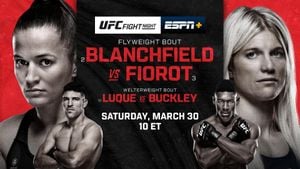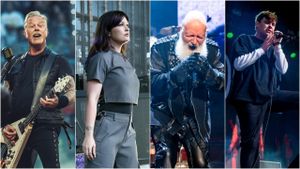South Korean Prime Minister Han Duck-soo has engaged actively with U.S. President Joe Biden, strengthening the alliance between the two nations amid significant domestic political shifts.
On the morning of November 15, Han held a telephone conversation with Biden, emphasizing the importance of maintaining and enhancing the long-standing partnership between South Korea and the United States. “I will strive to maintain and develop unwavering cooperation with the United States,” Han declared during the call.
Biden responded by affirming his trust in Korean democracy and reinforcing the commitment to the “iron-clad relationship” between the two countries. “The iron-clad relationship between our two countries remains unchanged,” said Biden, reflecting the stability of the alliance.
Prior to this significant call, Han convened emergency cabinet meetings and national security discussions on the night of November 14. These actions represent Han’s formal assumption of duties as acting Prime Minister, following the recent political turbulence surrounding President Yoon Suk-yeol, who is currently facing scrutiny over his administration’s conduct.
Meanwhile, the leader of the main opposition party, Lee Jae-myung, announced on the same day of the call, “I decided not to pursue impeachment procedures at this time.” This statement has political ramifications, as there had been discussions about the possibility of impeachment over Yoon's controversial handling of issues, including public protests and legal challenges.
Lee’s comments suggest a desire to stabilize governance and avoid deepening divisions during this sensitive period. He articulated concerns about the potential chaos impeachment proceedings could bring to the nation. “If impeachment leads to chaos, it is necessary for the National Assembly and the government to cooperate and establish discussions to stabilize governance,” Lee remarked.
Han’s recent actions indicate his intention to assert control over the government’s direction and digest the pressures stemming from the opposition, as the country gears up for future elections.
On November 15, the South Korean public took to the streets for protests demanding action against President Yoon. Protesters chanted for rapid judicial decisions concerning the impeachment inquiries, reflecting widespread discontent among citizens.
Reflecting on his predicament, Han Duck-soo appears focused on creating steadiness within the government by fostering international relations. His series of meetings is strategic, showcasing commitment to established alliances during uncertain times.
This proactive stance is purportedly aimed at securing support within both domestic and international spheres, reinforcing the notion of stability amid tumult.
With the U.S.-South Korea alliance facing challenges, this visit and communication reportedly signal the South Korean government's determination to uphold its democratic values and its commitment to strong international partnerships.
Despite the political upheaval at home, Han's interactions with Biden and the structured meetings indicate potential improvements intended to stabilize internal governance and reinforce South Korea’s role on the world stage.
How will these developments affect Han's leadership? Only time will tell if these early steps will yield the politically charged environment needed to forge paths for future governance and public trust.



